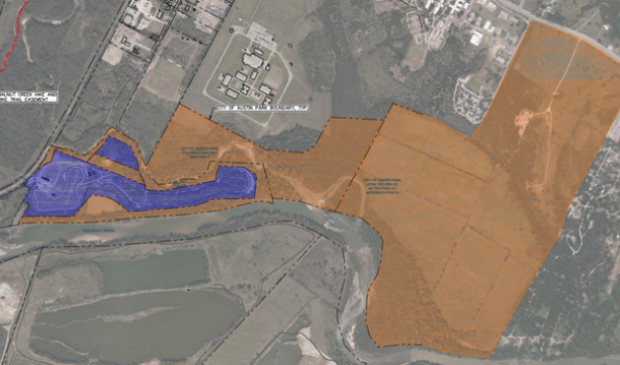About the Author
Jo Clifton is the Politics Editor for the Austin Monitor.
Newsletter Signup
The Austin Monitor thanks its sponsors. Become one.
Most Popular Stories
- A once-banned type of building is back in favor – and the Planning Commission approves
- City facing a $33 million deficit for 2026
- Austin-Bergstrom International Airport announces new flight service while anticipating capacity cuts
- East Austin’s ‘wishbone’ bridge takes shape as concrete beams almost span Lady Bird Lake
- SOS suing state agency over failure to provide information on MoPac expansion
-
Discover News By District

Attorney raises questions about wording of Prop B
Thursday, October 21, 2021 by Jo Clifton
No sooner had we explained the ins and outs of Proposition B on the Nov. 2 ballot when attorney Bill Aleshire came along and attempted to show that the ballot language is misleading and may not give the city the authority it needs to swap properties.
In a lengthy email to the Austin Monitor, Aleshire explained why he thinks the ballot language approved by Council is inappropriate. He wrote, “My client, Brian Rodgers, asked me to look into whether the city’s Prop B ballot language for the ‘waterfront’ parkland swap is being truthful with the voters. Without voter approval, the Austin City Charter, Art. II, section 7 prohibits the Council to ‘sell, convey, lease, mortgage, or otherwise alienate any land which is now, or shall hereafter be, dedicated for park purposes.'”
It is no secret that the city hopes to trade its property to Oracle in return for the much larger acreage containing a motor sports tract that would finish the acquisition of land needed to complete John Treviño Jr. Metropolitan Park. In return, Oracle would get the acreage it is seeking to expand its headquarters.
But Aleshire says after looking at the approximately 48 acres the city hopes to get in return for 9 acres of parkland, he concluded that the acreage is not contiguous either to the Colorado River or a creek. He wrote, “There is what appears to be a pond on the south side of the motor sports tract that, depending on the water level, might touch the motor sports tract, but is this what voters are being told they would be getting for ‘waterfront’ land?”
He concluded, “I think voters are being led to believe they would be getting Colorado River waterfront property if the motor sports tract was acquired, and that is clearly deceptive because Austin taxpayers already own that Colorado riverfront. Just because the motor sports tract touches the city-owned land where the pond is located does not make that property ‘waterfront.'”
Aleshire says there is a danger that the city will run afoul of the state’s Deceptive Trade Practices Act. “Telling voters that the motor sports tract is ‘waterfront’ raises legal issues. Advertising property as ‘waterfront’ is carefully regulated because the term has been used in deceptive land deals,” he notes.
The Monitor reached out to David Butts, a consultant for the Grow Austin Parks campaign. He explained, “It’s a narrow strip of land that the city does own that’s along that area, and the land that we’re talking about is along that. The land is a short distance from the river. No, it’s not touching the water, but it’s not that far away from the water.”
Aleshire told the Monitor he did not expect his current client to sue the city if Proposition B is approved.
“I don’t know what he’d file suit over,” said Butts. “If the voters approve it, the voters approve it. The wording I read says it’s adjacent to or near the water … not far away. I’ve been there … it’s very close and there’s a narrow strip of city-owned land that runs right along the river.”
“It’s a good deal for the city in the long run,” Butts added. “Land is at a premium these days, so if I have anything to do with getting more land on the river or around the river I would be for it, because we’re not going to keep it,” unless it’s publicly owned.
All City Council Member Paige Ellis had to say about the matter was this: “The ballot language was thoroughly vetted by the city’s Law Department, and they can provide further detail if needed.”
The Austin Monitor’s work is made possible by donations from the community. Though our reporting covers donors from time to time, we are careful to keep business and editorial efforts separate while maintaining transparency. A complete list of donors is available here, and our code of ethics is explained here.
You're a community leader
And we’re honored you look to us for serious, in-depth news. You know a strong community needs local and dedicated watchdog reporting. We’re here for you and that won’t change. Now will you take the powerful next step and support our nonprofit news organization?





